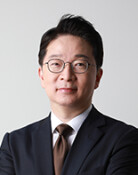Special pardon is practically legal prison-breaking
Special pardon is practically legal prison-breaking
Posted February. 20, 2024 07:44,
Updated February. 20, 2024 07:44
The prerogative of pardon exists in most advanced countries, including South Korea. The academia finds its foundation from the perspective of the ‘self-correction of constitutionalism,’ meaning that it is a last resort to correct any unjust results as no laws can be perfect even with the rigorous establishment process. As it is a necessary evil, the prerogative should be exceptionally exercised, limited to cases that can be accepted by anybody.
However, special pardons offered under the current South Korean administration are far from such a principle. Since President Yoon Suk Yeol took office less than two years ago, four rounds of special pardons were given, including the ones on February 6 for the Lunar New Year, to over 6,000 people. Such frequent special pardons seem unusual for the current administration that so many former prosecutor figures, whose job used to be to investigate and prosecute criminals to have them pay the price, have been appointed to key positions to the extent that the administration is nicknamed a ‘prosecution republic.’ The government explained that most special pardons were given to those who committed crimes due to economic struggles or were socially vulnerable. Despite the explanation, the pardons were too frequently handed out to too many people.
What’s more problematic is that a series of politicians and high-ranking officials were pardoned without clear explanations. The latest special pardons included over 10 politicians and former public officials, including former Chief Presidential Secretary Kim Gi-chun and former National Defense Minister Kim Kwan-jin. Some of the pardoned individuals were former National Assembly members who were convicted for receiving a large amount of illegal political funds. The government, which provided special treatment to corrupt politicians who were imprisoned for receiving bribes, presented its pardon decisions as a way to “promote national integration by resolving conflicts and making reconciliations.”
The previous administrations were not that different. From the Roh Tae-woo administration to the Moon Jae-in administration since the country's democratization, 41 rounds of special pardons were given, or 1.2 rounds per year on average. Over 200,000 people were given special pardons, received reduced sentences, or were reinstated. Pardons are so frequently given to prominent politicians and former high-ranking officials to the point that the reasons why they haven’t been pardoned are discussed. Professor Lee Seung-ho of Konkuk University criticized special pardons as a “jailbreaking tool of absolute power that disregards the boundaries of criminal justice.”
Such indiscriminate special pardons are possible because it is the president’s proprietary right defined by the Constitution. However, the Constitution states that the president should exercise pardons by the law, and the academia shared an opinion that restricting the prerogative of pardon to an appropriate scope with laws is not against the Constitution. However, the current Amnesty Act only defines the procedures of special pardons without practical rules on their criteria and conditions.
Fifty revision bills for the Amnesty Act were proposed since the 13th National Assembly in 1988, with most of them arguing to strengthen the procedures for special pardons and restrict their subjects. Various proposals were made – disqualifying those convicted for corruption or election offenses, consulting the chief justice of the Supreme Court or reporting to the National Assembly before giving out special pardons, and enabling pardons to only those who have served a certain portion of their prison terms. However, the proposals were mostly disregarded without sufficient discussions, with only three passing.
What’s meaningful among them was establishing the Amnesty Commission with the 2007 revision. However, the deliberation results of the commission are not binding, which isn’t enough to keep the prerogative of pardon in check. The abuse of pardons threatens the fundamental trust in fairness, which is the core of judicial justice. As we have seen so far, we can’t expect presidents to refrain from exercising their pardon power. Now is the time to restrict their abuse of the pardon power through legislation.







